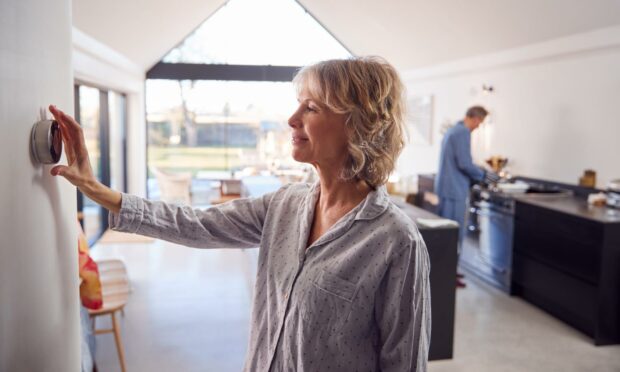With wholesale gas prices rising and COP26 in Glasgow about to bring the climate emergency into even sharper focus, now is a good time to look at ways to reduce energy consumption and keep household bills down.
The wholesale price of oil and gas rose by 70% since August and 250% since the beginning of the year, having a direct impact on households.
According to cost-of-living database Numbeo, the average monthly utilities bill for an 85m² flat in Aberdeen is £86.11, but that is set to rise as the UK’s wholesale electricity market has soared to record highs.
Those on standard tariffs, with typical household levels of energy use, will see bills go up by £139 to £1,277 a year, but the more energy a household uses, the higher their bill will be.
Last month Aberdeen MP Stephen Flynn called for chancellor Rishi Sunak to use a windfall tax on energy firms to help protect families hit by rising fuel bills.
He said: “People in Aberdeen and across the north-east are facing enormous rises in their energy bills.
“The chancellor must act to support households being whacked by colossal rises in utility bills – if he doesn’t, then he will be dealing with a new winter of discontent and that is something that people in the north-east just simply can’t afford.”
While the politicians argue it out, the penny-pinching professionals at NetVoucherCodes.co.uk are offering advice on how to keep household bills down.
“Saving energy can help you be more energy efficient and considerate of the environment, but it’s also a great way to save money,” a spokesperson said.
“With colder climates on their way, households will be using more energy.”
Here are the top tips on cutting utility costs from NetVoucherCodes.co.uk:
Move furniture
Ensure furniture is not covering radiators. A sofa or bulky chair will trap heat, meaning you’re paying for the warmth but not feeling the benefit of it.
Fridge freezers
These hefty white goods can consume up to a third of all the power in your home. Investing in an energy-efficient appliance should lower the cost of running them long term and reduce CO2 emissions. Fridges with energy labels A+++ will consume up to 80% less than a rating D.
TV
Regularly running for hours on standby will waste loads of electricity. Switching the power off at the wall is the best way to avoid this energy-munching mistake. Pick an LED TV over an LCD or plasma screen, as they consume far less energy.
Tumble Dryers
The tumble dryer is notorious for racking up your energy bills. When you do use it, make sure it’s full to maximise efficiency.
Lights
While switching off lights may be the simplest way to save energy, it’s surprising how many of us forget.
Energy-efficient LED light bulbs can be up to 80% more efficient than conventional bulbs.
Desktop computers
Desktop computers are energy-hungry and can cost up to £13 a year to run, compared to the annual £4 used for a laptop. Add a printer and you will be spending even more.
Smart thermostats
A smart thermostat is a great way to control how much energy you’re using through your central heating and they can be set from your phone. Put your heater on a timer so you’re not overspending without realising.
Investing in a more energy-efficient, A-rated condensing boiler could save you up to a huge £300 per year.
Insulation
If you want to stop heat escaping from your home, insulate the roof. It could shave up to £130 off your bills each year and save you a fortune in the long term.



